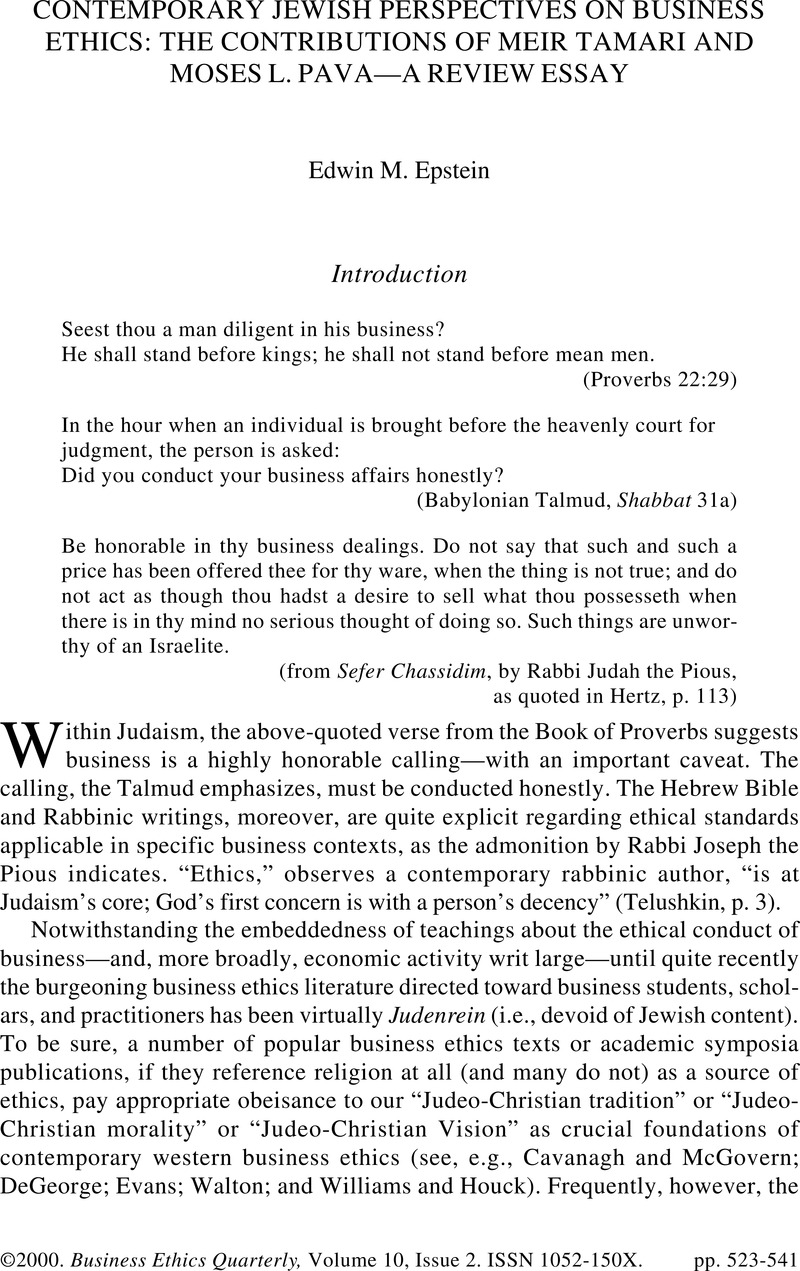Crossref Citations
This article has been cited by the following publications. This list is generated based on data provided by Crossref.
Weaver, Gary R.
and
Agle, Bradley R.
2002.
Religiosity and Ethical Behavior in Organizations: A Symbolic Interactionist Perspective.
The Academy of Management Review,
Vol. 27,
Issue. 1,
p.
77.
Epstein, Edwin M.
2003.
Religious Resources for Business Ethics: A Jewish Perspective.
Latin American Business Review,
Vol. 4,
Issue. 4,
p.
111.
Brammer, Stephen J.
Williams, Geoffrey Alan
and
Zinkin, John
2005.
Religion and Attitudes to Corporate Social Responsibility in a Large Cross-Country Sample.
SSRN Electronic Journal,
Brammer, S.
Williams, Geoffrey
and
Zinkin, John
2007.
Religion and Attitudes to Corporate Social Responsibility in a Large Cross-Country Sample.
Journal of Business Ethics,
Vol. 71,
Issue. 3,
p.
229.
Schwartz, Mark
2013.
World Humanism.
p.
135.
Adnan Khurshid, Muhammad
Al-Aali, Abdulrahman
Ali Soliman, Ahmed
and
Mohamad Amin, Salmiah
2014.
Developing an Islamic corporate social responsibility model (ICSR).
Competitiveness Review,
Vol. 24,
Issue. 4,
p.
258.
Forster, Doris
2018.
Ona’ah und laesio enormis.
p.
237.
Alsaleem, Jafar
Melloni, Gaia
and
Malagueño, Ricardo
2019.
Religious Diversity and Corporate Social Responsibility.
SSRN Electronic Journal ,
Li, Changhong
Xu, Yuan
Gill, Amarjit
Haider, Zulfiquer Ali
and
Wang, Yuan
2019.
Religious beliefs, socially responsible investment, and cost of debt: Evidence from entrepreneurial firms in India.
Emerging Markets Review,
Vol. 38,
Issue. ,
p.
102.
Zsolnai, Laszlo
2022.
Spirituality and economics.
Journal for the Study of Spirituality,
Vol. 12,
Issue. 2,
p.
131.
Berger, Ron
Ali, Abbas J.
Barnes, Bradley R.
and
Alon, Ilan
2025.
Doing business in an Islamic context: six schools of thought.
Journal of Islamic Marketing,
Vol. 16,
Issue. 1,
p.
104.



